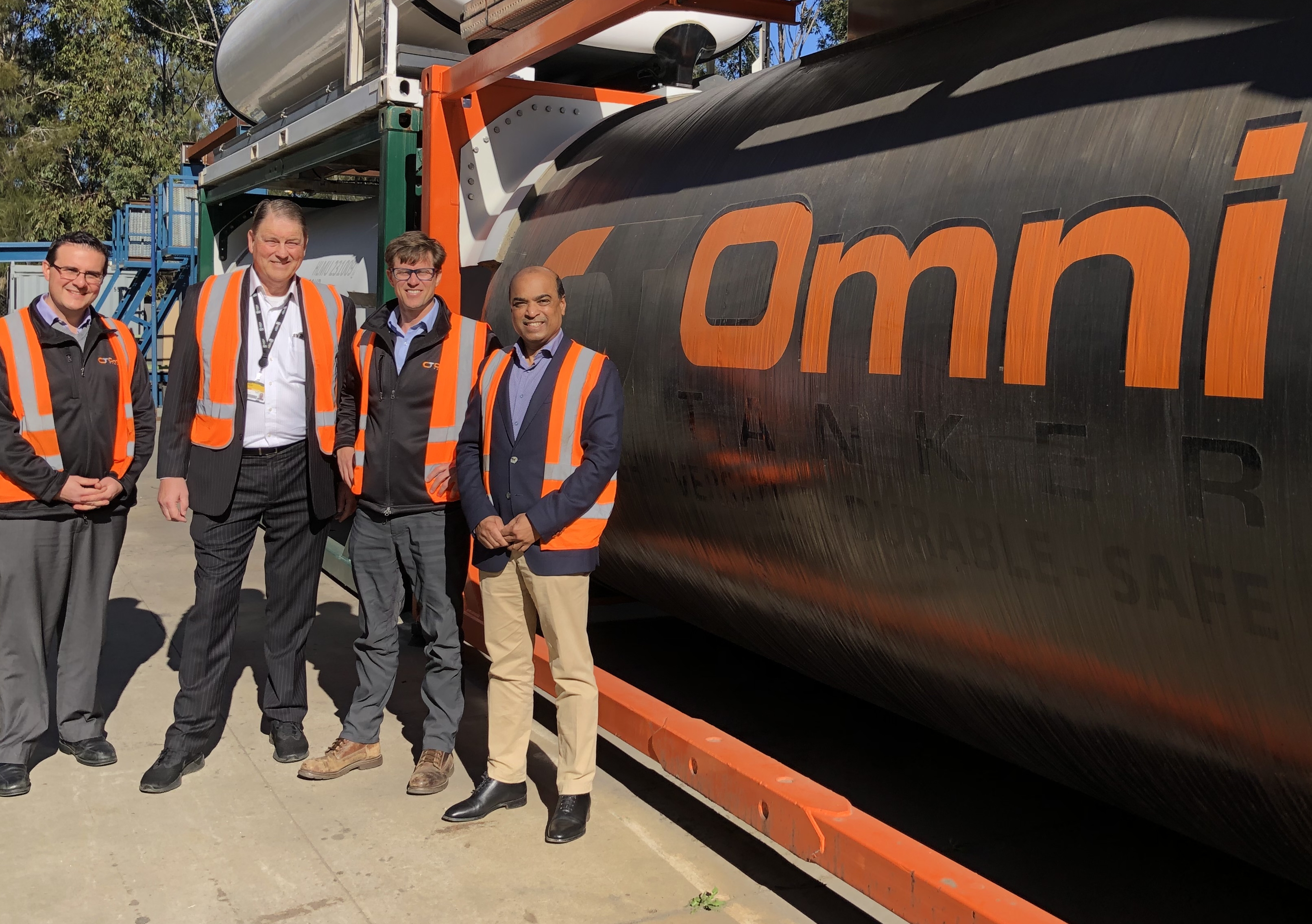UNSW and Omni Tanker find a winning formula in advanced composite manufacturing
Research by UNSW Sydney and Omni Tanker will lead to production and maintenance breakthroughs and enhanced export markets.
Research by UNSW Sydney and Omni Tanker will lead to production and maintenance breakthroughs and enhanced export markets.

Researchers at the UNSW-based Australian Research Council (ARC) Training Centre for Automated Manufacture of Advanced Composites (AMAC) and industry partner Omni Tanker, have successfully reduced production and maintenance costs of the company’s specialised chemical transport tanks for aggressive corrosive and high purity oxidising liquids. The breakthroughs will shore up the company’s position as the market leader in Australia and enhance export market success.
AMAC’s Director, UNSW Professor Ganga Prusty, said Omni Tanker approached his team to help accelerate new process developments for carbon fibre reinforced polymer tanks, to strengthen the company’s competitive edge over traditional steel and fibreglass tankers in US and European markets.
“Omni Tanker’s products are made from advanced composite materials, with a seamless interior of polyethylene thermoplastic. They are very lightweight and have far greater chemical resistance than traditional steel or fibreglass tankers currently in service around the world.
“We helped Omni Tanker create first-of-a-kind manufacturing technologies that include three major breakthroughs in the production and maintenance life-cycle of the tanks. These developments are now in various stages of implementation at Omni Tanker’s advanced manufacturing facility in western Sydney,” Prof. Prusty said.
One of the most significant advances is the development of a five-axis waterjet profiling manufacture cell, which has drastically reduced the company’s costs for cutting and preparing composite parts. The new method of precision cutting composites uses water pressure and abrasives without the need for manual labour. It is safer, reduces waste and prevents damage to the part.
“This innovation led to Omni Tanker securing funding through the NSW Government’s Manufacturing Modernisation Fund, which they will use to incorporate the new technology into production,” Prof. Prusty said.
The partners have also developed a highly innovative smart sensing technology using fibre optics, which provides structural health monitoring during manufacturing and for the entire life of the product.Fibre optic sensors can be embedded throughout the composite layers of the tank, giving Omni Tanker and its customers comprehensive feedback about any structural damage as soon as it occurs, so it can be addressed quickly, and the potential for more significant damage can be minimised. The sensors are far superior to the discrete sensing solutions currently available.
The third major innovation AMAC and Omni Tanker have created is a new way to join thermoplastics within a tank, which protects its composite layers from damage while maintaining the integrity of the seal. This technology is predicted to significantly enhance the service life of the vessel.
Founder and CEO of Omni Tanker, Daniel Rodgers, said the collaboration with AMAC researchers has allowed the business to rapidly develop break-through improvements with benefits across the entire product life cycle.
Mr Rodgers said: “Partnering with AMAC has helped us to dramatically accelerate our research and development program. The outcomes have created significant cost savings and competitive advantages that we would not have achieved alone in the timeframe.
“This work really puts us at the forefront of automated composite manufacturing innovation. Omni Tankers are the equipment of choice for the transport of aggressive corrosive liquids throughout Australia and we are now commercialising our technology and products in the international market. There are clear benefits to our collaboration with UNSW and AMAC and these will continue for years to come.”